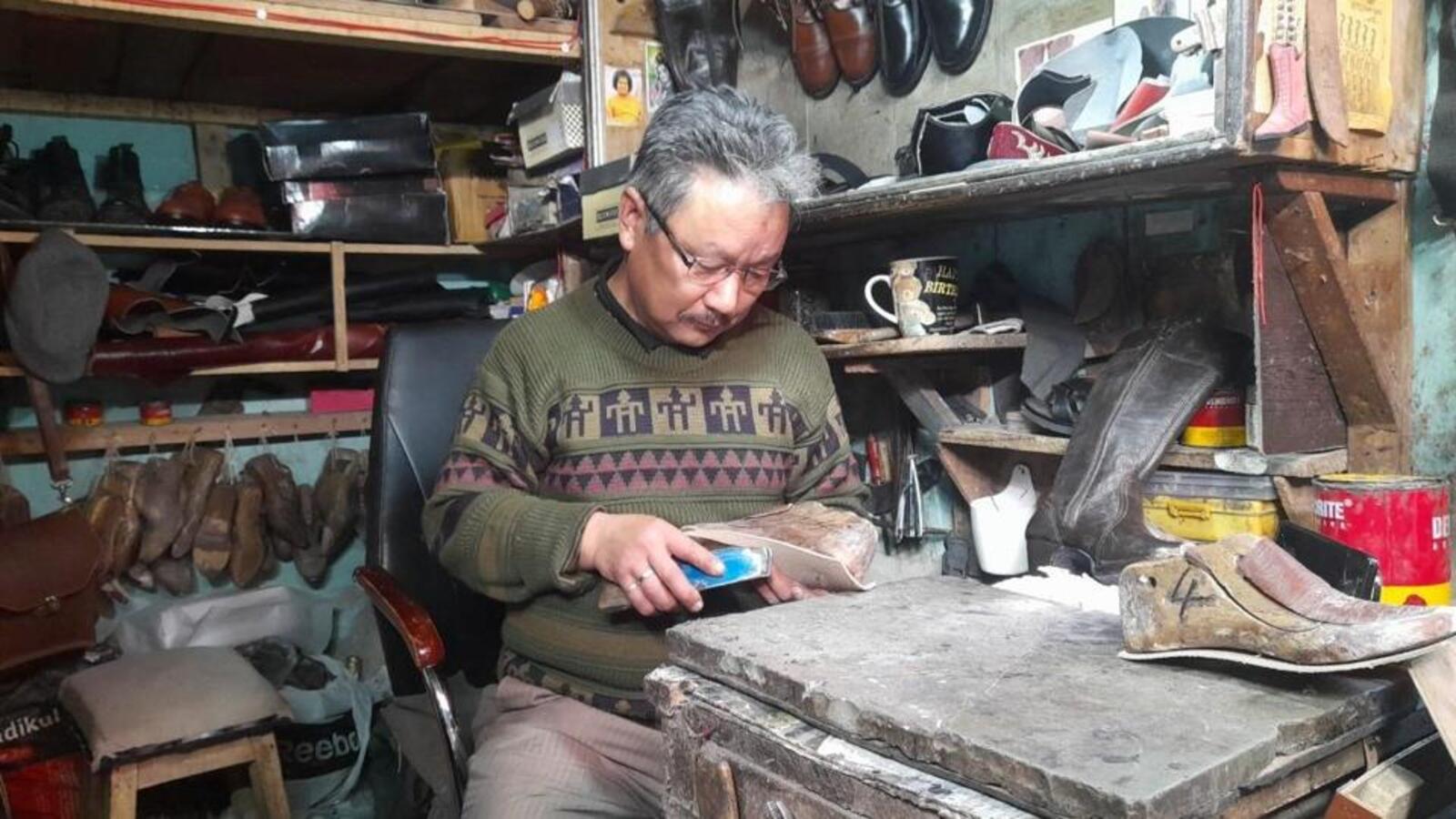SILIGURI: Darjeeling shoemakers Basant Thapa and Kumar Sarki recount their good old days when hill town youths waited weeks, sometimes months, to grab a pair of their shoes, including the fashionable Dingo boots.
The golden days are long gone and a handful of local shoemakers in the Darjeeling hills are struggling to survive in the competitive market as they see no hope of revival of their business.
Thapa, 62, a father of two, is one of the few surviving local shoemakers who continues to be in the business even if it means no income for days.
Thapa and Sarki said that local cobblers sold self-made shoes until the early 2000s. Chinese cobblers and Chinese shoe sellers have almost disappeared from the hills of West Bengal. They failed to compete with the big brands and went in search of greener pastures.
Thapa, who learned shoemaking from Chinese merchants in the 1980s, said: “As the big brands were not available until the late 1990s, even the smart and wealthy youngsters of Darjeeling would buy me shoes and other local shoemakers. Sometimes I sold more than 10 pairs of shoes a day. We used to hire people from the plain to make sure deliveries were made on time. Now I barely sell a pair in a week.
So why does he continue in the business?
“I’m already 62 and I can’t start a new business. Again, starting a new business needs money, which I don’t have. However, there are old people who are my buyers. So far they have helped me survive,” Thapa replied.
Local cobblers or cobblers lagged in style, finish and competitiveness, failing to attract young people.
Thapa said, “Due to lack of government support, we were unable to introduce modern technology and methods. If this continues, locally made shoes will be a thing of the past after 10 years.
The city of Darjeeling, known as the Queen of the Hills, famous for its beauty and fashion, had almost 50 shoemakers making some of the best footwear including Dingo Boots.
Sarki, a dedicated and loyal user of his own shoes, said: “Now even my kids don’t wear the shoes I make. During their school years, the shoes I sewed were my children’s favorites. There were times when school children only wore school shoes that we made or from Bata,”
“I still remember the days in the 80s when I received orders even from remote areas like Delhi and Kolkata, especially from visiting tourists,” Sarki said, adding that it was because of a few people in suits and of policemen that he is. managed to sell shoes today.
“There are a few people who wear suits and order shoes from me. There are also police officers who have always supported me and who have been ordering the shoes I have been making since 1972,” Sarki told HT.
Although Thapa and Sarki agree that branded shoes are cheaper than their shoes, they say locally made shoes are durable and healthy.
Recalling the good times, Sarki said, “There were dozens of Chinese shoemakers who had set up shops across the hills of Darjeeling and Kalimpong. Many locals were educated by the Chinese. At least half of the local shoemakers in Darjeeling were trained by the Chinese.
“The Chinese were smart and they could foresee the future and left the business and started something else,” Thapa said.
Pavitra Shankar, owner of Foot Care, a shoe store in Darjeeling city’s Chowk Bazar, said: “We used to have factories in Darjeeling and Siliguri where more than 14 people were employed.
Her husband, who died last year, had opened the shop, where only shoes made in their own factories were sold. The store continues to do good business.
“But the difference is that now we only sell shoes imported from outside and branded shoes. I will hand over the machinery and equipment we have in our now closed factories to anyone willing to take on the task” , she said.
There are hardly any takers for locally made shoes because they are expensive.
Darjeeling elders who always loved local shoes during their youth remember stories of how they waited weeks to get a pair of their favorite shoes.
Rajen Moktan, a retired policeman, said: “During our university studies, we had no choice but to buy from local shoemakers. But there was choice because there were many vendors, locals and Chinese settled in Darjeeling. They made shoes locally. I still remember when I used to buy shoes at prices like ₹20 to ₹25.”
“The hilltop youths sported locally made stylish shoes in the cities of Darjeeling and Kalimpong when they were barely available in cities like Kolkata,” Thapa said.
Kiran Baraily, a Darjeeling resident who studied at Government College Darjeeling in the early 1970s, said: “We were five boys and three girls in our college group. We all used to buy shoes together and order from local shoemakers. I remember the days when we waited more than a month to receive our deliveries. After that, we all flaunted and walked around town wearing new shoes and catching people’s attention.
These are bygone eras and we can’t think the time will return. But we can at least hold out for a while provided the government gives us financial support, Thapa and Sarki said.
When recounting the plight of local shoemakers like Thapa and Sarki, Moktan said, “What we as individuals can do is buy them at least a pair of shoes once in a while.”
Moktan, who now lives in Siliguri, said: “Next time I go to Darjeeling, I will visit Thapa or Sarki and buy a pair of shoes.”
If people like Moktan show up, they can make Thapa and Sarki smile.


